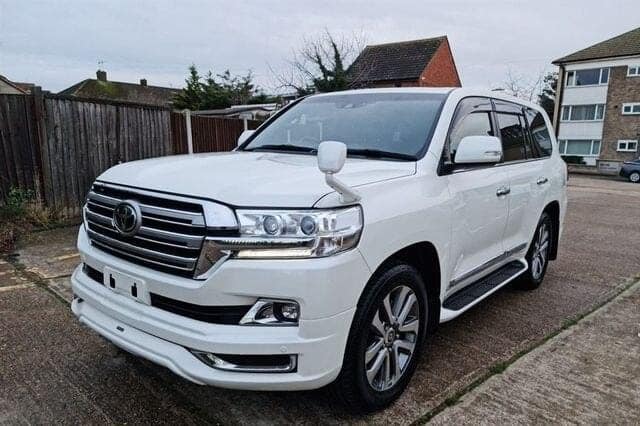The V8 engine has long been a symbol of power, performance, and prestige in the automotive industry. For over a century, this iconic engine configuration has captivated car enthusiasts, engineers, and everyday drivers alike. Its distinctive rumble, unmatched torque, and ability to deliver exhilarating speed have made it a staple in muscle cars, luxury vehicles, trucks, and even racing machines. In this article, we’ll explore the history, mechanics, and enduring appeal of the V8 engine, as well as its place in the modern automotive landscape.

The Origins of the V8 Engine
The V8 engine’s story begins in the early 20th century. French engineer Léon Levavasseur is often credited with creating one of the first V8 engines in 1902, which he called the “Antoinette.” However, it was the American automakers who truly popularized the V8. In 1914, Cadillac introduced the first mass-produced V8 engine, revolutionizing the automotive industry. This engine offered a perfect balance of power, smoothness, and compact design, making it ideal for a wide range of vehicles.
The V8’s popularity soared during the mid-20th century, particularly in the United States, where it became synonymous with the golden age of American muscle cars. Brands like Ford, Chevrolet, and Dodge embraced the V8 as the heart of their performance vehicles, creating legends such as the Ford Mustang, Chevrolet Corvette, and Dodge Charger. The V8 engine became a cultural icon, representing freedom, speed, and the American dream.
How the V8 Engine Works
At its core, the car engine is an internal combustion engine with eight cylinders arranged in a V-shaped configuration. The “V” refers to the angle between the two banks of cylinders, which is typically 90 degrees but can vary depending on the design. This configuration allows the engine to be more compact than an inline-eight engine while delivering exceptional power and smooth operation.
Each cylinder in a car engine houses a piston that moves up and down, converting the energy from burning fuel into rotational motion. The firing order of the cylinders is carefully orchestrated to ensure smooth power delivery and minimize vibrations. The result is an engine that produces a distinctive exhaust note, often described as a deep, throaty rumble that enthusiasts find irresistible.
One of the key advantages of the V8 engine is its ability to generate high levels of torque, which is the force that propels a vehicle forward. This makes car engines particularly well-suited for applications that require quick acceleration and towing power, such as sports cars, trucks, and SUVs.
The Appeal of the V8 Engine
The V8 engine’s enduring appeal can be attributed to several factors:
- Power and Performance: car engines are known for their ability to deliver impressive horsepower and torque. Whether it’s a high-revving sports car or a rugged pickup truck, the V8 provides the kind of performance that drivers crave.
- Smooth Operation: The car design inherently balances the forces generated by the pistons, resulting in a smooth and refined driving experience. This makes it a popular choice for luxury vehicles as well as performance cars.
- Iconic Sound: The unmistakable exhaust note of a V8 engine is music to the ears of car enthusiasts. From the aggressive growl of a muscle car to the refined purr of a luxury sedan, the V8’s sound is instantly recognizable.
- Versatility: The V8 engine is incredibly versatile, powering everything from compact sports cars to heavy-duty trucks. Its adaptability has ensured its relevance across a wide range of automotive applications.
- Cultural Significance: The car engine has become a cultural icon, representing power, freedom, and innovation. It has been featured in countless movies, TV shows, and songs, cementing its place in popular culture.
V8 Engines in Modern Vehicles
While the automotive industry has shifted toward smaller, more fuel-efficient engines and electric powertrains, the car engine remains a popular choice for those who value performance and tradition. Modern car engines have evolved to meet stricter emissions standards and incorporate advanced technologies such as direct fuel injection, turbocharging, and hybrid systems.
- Muscle Cars and Sports Cars: The V8 engine continues to be the heart of iconic muscle cars like the Ford Mustang GT, Chevrolet Camaro SS, and Dodge Challenger Hellcat. These vehicles combine classic design with modern performance, offering blistering acceleration and track-ready handling.
- Luxury Vehicles: High-end brands like Mercedes-AMG, BMW M, and Audi use car engines to power their flagship models. These engines deliver a perfect blend of performance and refinement, making them ideal for luxury sedans and SUVs.
- Trucks and SUVs: The car engine’s torque and towing capacity make it a natural fit for trucks and SUVs. Models like the Ford F-150, Chevrolet Silverado, and Toyota Land Cruiser offer car options for drivers who need both power and practicality.
- Racing and Performance: The car engine remains a dominant force in motorsport, particularly in NASCAR and endurance racing. Its reliability and power make it a favorite among racing teams and drivers.
The Future of the V8 Engine
As the automotive industry transitions toward electrification, the future of the V8 engine is uncertain. Stricter emissions regulations and the growing popularity of electric vehicles (EVs) have led some manufacturers to phase out car engines in favor of smaller, more efficient powertrains. However, the car loyal fanbase and timeless appeal ensure that it will remain a part of the automotive landscape for years to come.
Some automakers are exploring ways to keep the car engine relevant in a changing world. Hybrid V8 powertrains, which combine a traditional V8 engine with an electric motor, offer a compromise between performance and efficiency. These systems can deliver the power and sound of a car while reducing fuel consumption and emissions.
Additionally, the aftermarket industry continues to support V8 enthusiasts, offering performance upgrades, restoration parts, and custom builds. For many, the car engine is more than just a piece of machinery—it’s a passion.
Conclusion
The car engine is a true icon of the automotive world, representing power, performance, and prestige. From its early days as a revolutionary innovation to its current status as a symbol of speed and luxury, the V8 has left an indelible mark on the industry. While the rise of electric vehicles and stricter emissions standards may challenge its dominance, the car engine’s enduring appeal ensures that it will remain a beloved part of automotive culture for generations to come. Whether you’re a die-hard enthusiast or simply appreciate the thrill of a powerful engine, the car is a testament to the artistry and engineering that define the world of cars.

